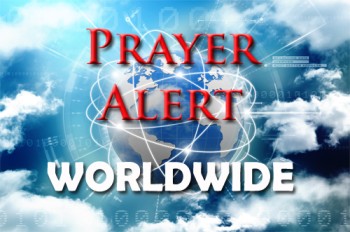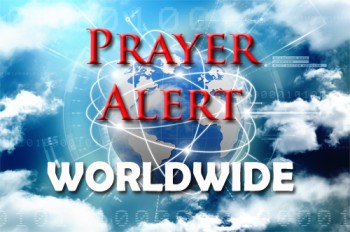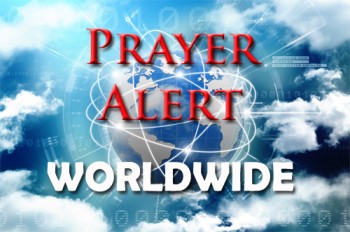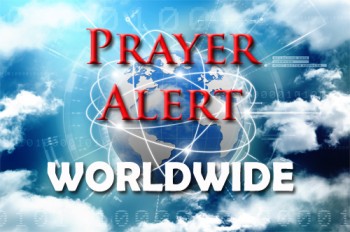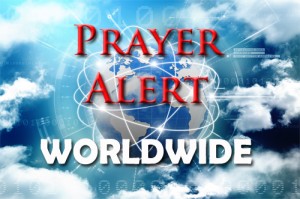Displaying items by tag: economic crisis
Nigeria: outrage at new presidential aeroplane
There has been widespread outrage after the government acquired an Airbus A330 for the presidential fleet despite the severe economic crisis. This move comes just weeks after nationwide protests over rising hunger and living costs. President Tinubu, who has implemented several economic reforms like the removal of fuel subsidies, justifies these changes as necessary for reducing government spending and fostering long-term growth. Despite announcing a 60% reduction in official travel delegations, he travelled to France using the newly acquired plane, which was bought to replace an older one. The cost of the plane and the purpose of his trip remain undisclosed. Many have condemned the purchase as insensitive, but officials said that the presidential fleet had a high maintenance cost due to the age of its planes, so it was a necessary investment.
Sri Lanka: more anti-government unrest
We prayed for Sri Lanka in April.l Please continue praying as protesters across the country are torching houses and businesses belonging to various ministers and MPs belonging to the ruling Rajapaksa family. During this week’s violence and looting PM Mahinda Rajapaksa resigned, and a luxury holiday resort owned by his son was torched by a mob. Over 200 people were injured and eight murdered in three days. The protesters want President Gotabaya Rajapaksa, Mahinda’s brother, to leave office. He has grossly mismanaged the economy, and they insist he must stand aside. In his first national address since protests began last month, he offered to cede some of the president's power to parliament but ignored calls to resign. Security forces are shooting law-breakers and looters on sight, and thousands of police and riot squads are patrolling the streets with tear gas and water cannons.
Sri Lanka: Economic crisis and revival
Anger over the worst economic crisis in decades drives unrest as hundreds of people defied a curfew and rallied in Sri Lanka’s cities and towns demanding the president steps down. They believe their economic crisis has resulted from the incompetency and impulsiveness of president Gotabaya Rajapaksa and his brothers (prime minister and finance minister) making seriously foolish decisions. The entire Cabinet resigned on 3rd April to try and appease protestors, but protesters won’t stop until the president resigns. Police are arresting hundreds for defying the curfew. India announced $1 billion credit to Sri Lanka to help shore up the sinking economy and keep food and fuel costs down. Sri Lankan doctors intend protesting as hospitals run out of essential drugs. Meanwhile, a Christian worker said, I’ve never seen people in Sri Lanka praying as much as they are now. Around the clock, pastors and church leaders are gathering. There are many prophetic utterances that a big revival is taking place.’
Sudan: a price for revolution
Falafel is a cheap fast food usually snapped up quickly on the streets of Sudanese cities. But now Sadiya Seror sits with unsold trays of her chickpea patties. ‘These days people eat one meal a day; they forget the idea of three meals,’ Seror said, waiting for customers at her market stall. If you want to buy a meal for your family, it will cost around 175 Sudanese pounds. Before, the same amount would feed a family of five for three to five days.’ ‘Before’ is a reference to life prior to the pro-democracy protests that ended the 30-year corrupt regime of President Omar al-Bashir. A power-sharing deal is currently being negotiated between the military council and the civilian protesters, but what is proving harder to resolve, and dimming hopes for real change, is the impact of poverty and rising prices on a large and growing percentage of the population.
Zimbabwe: violence against protesters
Zimbabwe is going through an economic crisis and is battling severe fuel shortages. The government recently announced a 150% petrol price increase, igniting widespread discontent, strikes and violent demonstrations. Then, while President Mnangagwa was out of the country, seeking much-needed foreign investment, police and soldiers launched large-scale operations against suspected protesters, activists and strike organisers. At least twelve people were killed and 78 treated for gunshot injuries, according to a local human rights group which recorded over 240 incidents of assault and torture and 700 arrests. People were hunted down in their homes by security forces and severely beaten, with arrests continuing after Mnangagwa had returned. He said, ‘Violence or misconduct by our security forces is unacceptable and a betrayal of the new Zimbabwe.’ Accused of conducting a deadly crackdown on dissent, the army and police denied any wrongdoing, saying some assailants raiding homes were wearing official uniforms to pose as security personnel.
Venezuela: desperate humanitarian disaster
Thousands scavenge on the streets for scraps of food. Masses wait in long queues for basic necessities that are largely unaffordable and unavailable. Venezuela's economic crisis is now a humanitarian disaster. 82% live in poverty. There are massive food shortages. Three-quarters eat less than two meals per day. There has been a sharp rise in infant mortality, maternal deaths, malaria, and diphtheria. 85% of medicine is in short supply. There have been demonstrations against the government which have become increasingly violent. President Maduro has prosecuted political rivals under terrorism laws, and on 14 May the Supreme Court tried to dissolve the national legislature, which is led by the political opposition. Beneath all this is a spiritual battle. Venezuela is the least church-going country in Latin America. Many, even within the Church, dabble in Spiritism. New Age spirituality is on the rise, and Satanists actively seek to destroy the Church.
